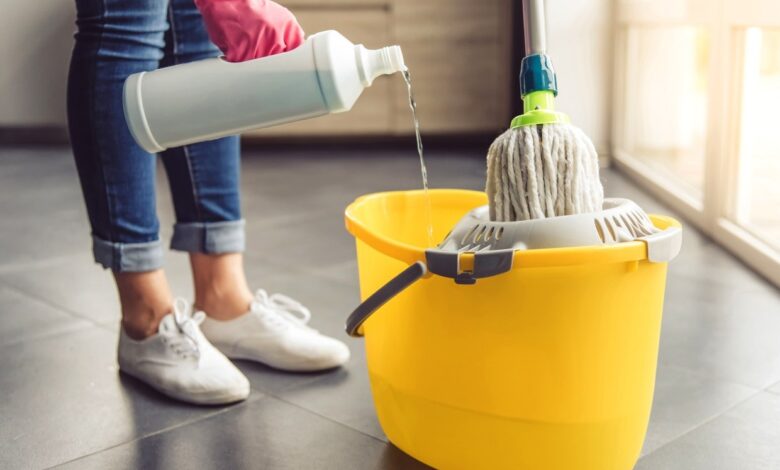Why Getting Clean Doesn’t Have to Mean Going Far From Home

There’s a common belief that effective addiction treatment requires traveling to some far-away facility, maybe in another state or even across the country. People think they need to pack their bags and disappear to some remote location to get the help they need. This idea has become so widespread that many people delay getting treatment because they can’t imagine leaving everything behind.
The reality is much different. Quality addiction treatment exists in communities everywhere, and staying close to home often provides advantages that distant treatment can’t match. The key is knowing what to look for and understanding how local treatment can be just as effective as going anywhere else.
Breaking the Myth of Distance Equals Quality
Many people assume that expensive treatment centers in exotic locations must be better than local options. This thinking comes partly from movies and media that portray recovery as something that happens in beautiful, isolated settings. While those facilities may be excellent, they’re not inherently better than well-run local programs.
The quality of addiction treatment depends on factors such as staff credentials, evidence-based approaches, individualized care, and ongoing support systems. These elements can be found in treatment centers regardless of their location or how much they charge. A program’s effectiveness comes from its methods and staff, not from its zip code or scenic views.
Programs such as addiction treatment in New Jersey by Legacy Healing Center and similar local facilities often provide comprehensive care that rivals any distant program while offering the additional benefits of proximity to family and familiar support systems. Local treatment allows people to maintain important connections and responsibilities while still receiving professional, evidence-based care that addresses both the addiction and underlying issues.
Distance can sometimes create an illusion of transformation that doesn’t translate to real-world situations. Learning to stay sober in an artificial environment hundreds of miles away is different from learning to manage recovery in the same community where the addiction developed.
The Power of Staying Connected to Your Support System
Family and friends play crucial roles in long-term recovery success, and geographic proximity makes their involvement much more practical. When treatment happens locally, loved ones can participate in family therapy sessions, attend educational programs, and provide ongoing support without the logistical challenges of long-distance travel.
Children need consistency during a parent’s recovery, and local treatment allows for regular visits, participation in school events, and maintenance of important family routines. This continuity helps children feel more secure and allows the recovering parent to stay connected to their family responsibilities.
Friends who want to support recovery can actually do so when treatment happens nearby. They can attend support group meetings, provide transportation to appointments, or simply be available for coffee and conversation during difficult moments. These ongoing relationships often provide stronger support than connections made with people who live far away.
Learning Recovery Skills in Your Real Environment
One of the most practical advantages of local treatment is learning to manage sobriety in the same environment where addiction developed. Instead of mastering recovery skills in an artificial setting and then trying to apply them later, people can practice healthy coping strategies while facing their actual triggers and stresses.
Local treatment means encountering the same people, places, and situations that contributed to addiction problems, but now with professional support to navigate these challenges safely. This real-world practice builds confidence and develops coping skills that are tested in authentic situations rather than theoretical scenarios.
The commute to local treatment, dealing with familiar traffic patterns, and managing regular responsibilities while in recovery all provide opportunities to practice the life skills that support long-term sobriety. These everyday challenges become part of the recovery training rather than obstacles to overcome later.
Practical Benefits That Make Recovery Easier
Local treatment eliminates many logistical barriers that can interfere with getting help or completing programs. Transportation becomes manageable, work schedules can be coordinated more easily, and the stress of being in an unfamiliar place doesn’t add to the challenges of early recovery.
Insurance coverage often works better for local treatment because providers are more likely to be in-network and familiar with local insurance systems. This can mean lower out-of-pocket costs and fewer administrative hassles during an already stressful time.
Childcare arrangements, pet care, and home maintenance all become simpler when treatment happens nearby. These practical considerations might seem minor, but they can become major obstacles that prevent people from completing treatment programs or cause unnecessary stress during recovery.
Building Local Recovery Communities
Staying local for treatment connects people to recovery communities in their own area. Support groups, sober social activities, and ongoing counseling relationships all become part of the local network that continues long after formal treatment ends.
These local connections often provide the strongest foundation for long-term recovery because they’re sustainable and accessible. Having recovery friends who live nearby means having people who understand the journey and can provide encouragement during difficult times without requiring travel or special arrangements.
Local recovery communities also offer opportunities to help others who are just beginning their recovery journey. This peer support creates meaning and purpose that strengthens personal recovery while contributing to the broader community’s wellbeing.
When Local Treatment Makes the Most Sense
Local treatment works particularly well for people who have strong, healthy relationships in their community and responsibilities they can’t abandon. Parents with school-age children, people caring for aging relatives, and those with jobs they want to keep often find that local treatment allows them to address their addiction while maintaining other important commitments.
People who feel anxious about being far from familiar support systems during vulnerable times often do better with local treatment. The security of knowing help is nearby and being able to access familiar resources can provide emotional stability that supports the recovery process.
Local treatment also makes sense for people who have tried distant programs before but struggled with the transition back to their home environment. Learning recovery skills in the actual setting where they’ll be applied can provide better preparation for long-term success.
Choosing Quality Local Treatment
Finding good local treatment requires the same evaluation process used for distant programs. Look for facilities with licensed staff, evidence-based treatment approaches, appropriate levels of care, and good success rates. Ask about staff credentials, treatment philosophies, and how they measure outcomes.
Visit potential treatment centers, meet with staff, and ask detailed questions about their programs. A quality local facility will be transparent about their methods, willing to discuss their approach, and able to explain how they tailor treatment to individual needs.
Check with insurance providers to understand coverage options and verify that potential treatment centers are properly licensed and accredited. Local medical professionals and mental health providers can often provide recommendations based on their experience with different programs.
Making Local Treatment Work
Success with local treatment often requires being honest about which aspects of the local environment support recovery and which create challenges. This might mean temporarily avoiding certain places, setting boundaries with specific people, or making changes to daily routines that previously supported addictive behaviors.
Take advantage of the unique opportunities that local treatment provides. Involve family in the treatment process when appropriate, use familiar community resources that support recovery, and build relationships with local recovery communities that can provide ongoing support.
Work with treatment providers who understand both the advantages and challenges of local recovery and can help navigate them effectively. The right local program can provide treatment that’s just as effective as any distant facility while offering practical advantages that support long-term success in your actual community.




